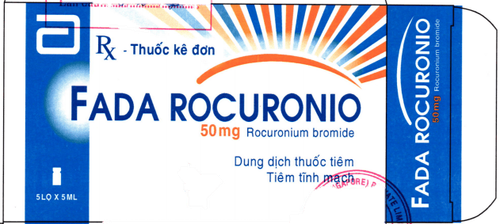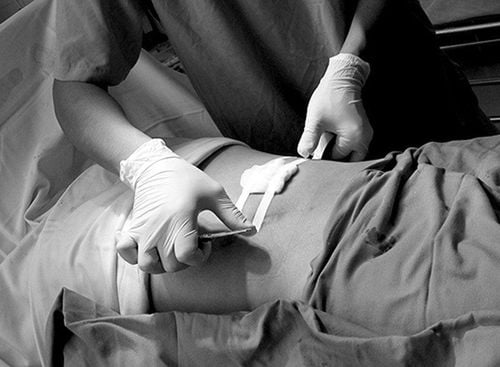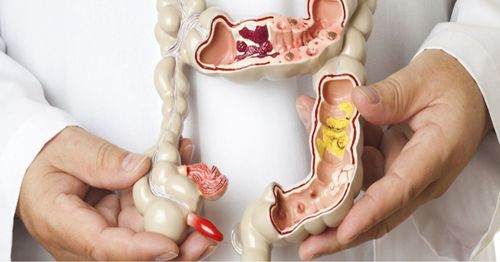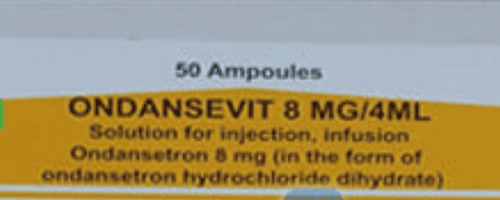This is an automatically translated article.
When you return home from surgery, taking good care of your wound, making sure your surgeon's cut heals well, and is free of infection will all contribute to the success of the surgery. Even, it is necessary to take care of the wound to heal quickly and achieve high aesthetics. To do this, it is important to know how to care for your incision after surgery with some simple rules that anyone can do at home.1. When can the bandages be removed?
On the day you leave the hospital, your surgeon will give you instructions on exactly when you can remove the bandage covering your incision. Most wounds do not require a dressing change one day after discharge from the hospital, unless directed by a doctor in cases of open, oozing wounds (in these cases, an early follow-up appointment should be scheduled for a doctor's appointment). re-evaluator). During this time, you will need to keep the entire area covered after surgery, which will help protect the incision from further damage and possibly heal faster.On the next day, you should remove the old bandage and change it with a new one. Learn how to clean the wound and change the dressing every day for the next few days, until the wound is sutured and fully healed.

Chăm sóc vết mổ sau phẫu thuật
2. How to take care of a sutured wound
Cleaning the sutured wound surface and surrounding skin should be done with hands that have been washed with soap or an antiseptic solution. Use pliers with cotton balls, gauze or soft cloth.First, soak a sterile cloth or gauze in physiological saline solution. Then, gently wipe or dab on the wound surface. Pay attention to the seams, thread feet or termites because these are the places where many germs gather. Next is to clean the skin around the wound, spreading within a radius of about 5cm. It is necessary to respect the principle of washing the wound first, the surrounding skin after. Absolutely do not follow the reverse order because it is easy to infect the incision.
Do not use skin cleansers, antibacterial soaps, alcohol, iodine or peroxide (hydrogen peroxide). The reason is that these solutions are only used for "dirty" wounds, with purulent, inflammatory secretions. If applied to clean wounds after surgery, the wound is healing, they can destroy the immature granulation tissue, delaying the healing process. Also, do not apply any lotion, moisturizer, or herbal oils or solutions unless directed by your doctor.
Finally, dry the wound with gauze and cover with clean gauze or clean cloth.
3. Is it necessary to keep the wound dry?
Avoid getting the sutured wound wet for the first 24 hours after surgery. Therefore, on the first day after surgery, you can wipe yourself on the bed with a dry towel instead of bathing as usual if bathing does not guarantee to keep the wound dry.After the second day, if you only have limited exercise, your body does not excrete much sweat, you should limit bathing. In case it is necessary to clean the body, it is advisable to bathe under the shower for a moderate time and carefully cover the surgical area, to avoid dirty water and soap getting in. Absolutely do not take a bath or soak because when your wound is soaked in water, the epidermis tends to soften, exposing the suture line. This facilitates the entry of both resident bacteria on the skin and foreign strains.
After bathing, quickly dry the body as well as gently the skin around the wound with a clean towel. This is also the ideal time of day to do the next step in dressing the wound.

Nên giữ khô vết thương cho nhanh lành và tránh nhiễm trùng
4. Can you be active and walk again after surgery?
Absolutely do not stay absolutely still on the bed, but you should practice moving again immediately after leaving the postoperative monitoring room. Doctors even recommend walking on the first day. However, it is best to move as gently as possible to avoid the displacement affecting the wound, unpacking the bandage or risking the sutures to come loose and fall apart.5. What to do if the wound is bleeding?
When you see that the wound is bleeding, it is necessary to remove the old bandage and replace it with a new one. At the same time, you can apply pressure on the bandage for a few minutes to help stop the bleeding in the most simple way.In case you observe a large amount of blood coming out of the sutured wound or after applying pressure it continues to bleed, you should return to the hospital as soon as possible.
6. When will the stitches be removed?
If your wounds are sutured with soluble sutures, you won't have to go back to the doctor again as they should go away on their own in 7 to 10 days.On the contrary, if the doctor closes the wound with regular sutures, you need to return for the appointment to have the suture removed. The common time to remove sutures from a wound after surgery ranges from 5 to 21 days, depending on the surgery you had.
7. When to tell the doctor?
You need to notify your doctor or go to a follow-up doctor soon if you notice any of the following abnormalities in your postoperative wound:Increasing pain; Redness or swelling; Bleeding or discharge of pus; Increased discharge from the wound; There is a bad smell; The wound looks bigger, deeper; Release the suture; The surrounding skin is edematous, painful or tender; Whole body tired, lethargic; Body temperature exceeds 38.5oC for more than 4 hours. The above symptoms suggest that the surgical site may have become infected. Treatment at this time cannot be continued at home, but must be professionally cleaned by medical staff. Sometimes additional systemic antibiotics are required. In rare cases, the surgeon will need to remove the suture to probe the risk of infection from the incision from the inside.
In short, knowing how to take care of the incision after surgery is an important part of helping the body recover from illness. The rules presented above are extremely simple for everyone to understand and apply conveniently at home to clean wounds for themselves or their loved ones for their family.
Please dial HOTLINE for more information or register for an appointment HERE. Download MyVinmec app to make appointments faster and to manage your bookings easily.
Reference source: webmd.com












